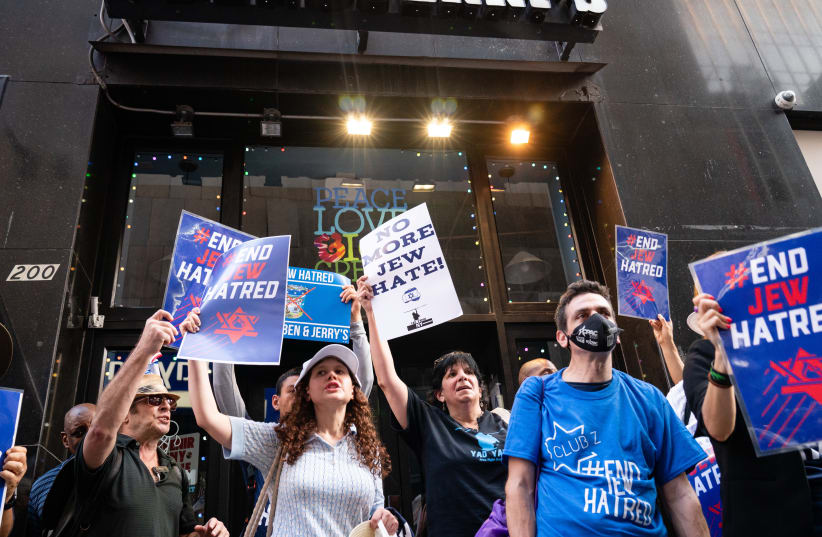Just eight decades after the Holocaust, in which six million Jews were murdered by the Nazis in the worst hate-driven act of mass genocide in human history, antisemitism is once again on the rise worldwide, with Jewish communities facing threat levels unprecedented in the post-World War II era.
As an organization founded in the wake of that war largely to prevent similar international conflagrations from recurring in the future, the United Nations has a particular duty to identify and root out the sources of bigotry and divisiveness that fuel such conflicts.
While often referred to as the “world’s oldest hatred,” antisemitism constantly reinvents itself in new contemporary forms, spanning the ideological and political spectrums, with extremists on the far right and far left, as well as radical Islamists, as the main perpetrators, and it is increasingly gaining momentum in more mainstream circles
Recent years have seen a series of horrendous violent atrocities targeting Jewish institutions in Europe, North America, and the Middle East, and there are daily reports of physical assaults on Jews, antisemitic verbal harassment both online and real-life, and synagogue and cemetery vandalism, among other incidents.
In the United States, for example, FBI data shows that Jews are the most-targeted religious minority group in hate crimes, and this trend is mirrored in many other countries.
Furthermore, we must remember that what starts with the Jews never ends with the Jews, and antisemitic discrimination and persecution are often symptoms of the frayed cohesion of society as a whole.
To effectively counter antisemitism, a commonly agreed-upon understanding of what constitutes antisemitism is necessary. In the past decade, the International Holocaust Remembrance Alliance (IHRA) Working Definition of Antisemitism -- and its 11 accompanying examples -- has emerged as the global “gold standard” in the collective effort against all manifestations of modern-day Jew-hatred.
The definition was adopted by IHRA in 2016, and since then, 41 nations, including most Western democracies, have followed suit, as have a diverse collection of more than 1,160 other entities -- including intergovernmental organizations, regional, state, and local authorities, NGOs, universities, athletic clubs, and corporations -- worldwide.
The far-reaching impact of the definition is rooted in this broad-based consensus that has formed around it, and it is now widely recognized as the most authoritative and comprehensive tool communities look to around the world to delineate what represents prejudiced behavior toward Jews today.
On International Holocaust Remembrance Day in January 2022, UN Secretary-General Antonio Guterres -- a dedicated champion for human rights and a stalwart ally of the Jewish people -- recited the text of the definition and commended “the efforts of countries that have agreed on the common definition of antisemitism.”
The European Union, the Organization of American States, and numerous UN member states on the national level have used the definition as a cornerstone of strategies to combat antisemitism.
Next month, in Cordoba, Spain, a summit organized by High-Representative for the Alliance of Civilizations, Miguel Moratinos, will be held to discuss a UN action and response plan for antisemitism.
This initiative offers a can’t-miss opportunity for the UN to stand up and show its solidarity with the global Jewish community by recommending that all its member states and affiliated agencies adopt the IHRA Working Definition of Antisemitism.
There would be no better way for the UN to prove its commitment to fighting antisemitism and securing and nurturing Jewish life around the world than by taking this vital step.
Robert Singer is chairman of the Center for Jewish Impact (CJI), and Sacha Roytman Dratwa is CEO of the Combat Antisemitism Movement (CAM).
